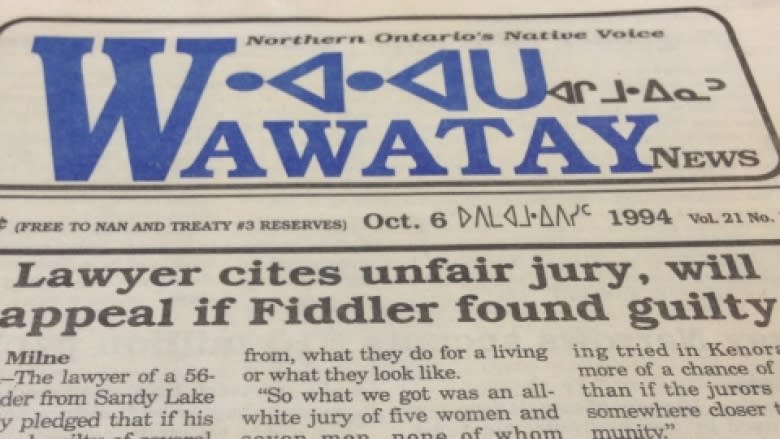Indigenous media organizations vie for radio licences in Ottawa
Indigenous media organizations vying for radio licences in five Canadian cities are in the capital region this week to make their pitches, and two of them hope to serve Ottawa.
The Canadian Radio-television and Telecommunications Commission (CRTC) is holding public hearings in Gatineau to consider applications for radio licences in Ottawa, Toronto, Calgary, Edmonton and Vancouver.
In June 2015, the federal broadcast regulator revoked radio station licences held by Aboriginal Voices Radio (AVR) due to "severe" and "repeated" non-compliance issues, resulting in five frequencies becoming available in those cities.
A CRTC panel is now considering proposals from:
- Wawatay Native Communications Society (Ottawa and Toronto).
- First Peoples Radio Inc. (Ottawa, Toronto, Calgary, Edmonton and Vancouver).
- Aboriginal Multi-Media Society of Alberta (Calgary and Edmonton).
- VMS Media Group Ltd. (Calgary and Edmonton).
- Northern Native Broadcasting (Vancouver).
The Wawatay Native Communications Society was the first organization to make a presentation to the CRTC on Monday. The independent media company — which formed in 1974 to preserve and enhance the language and culture of the Nishnawbe Aski Nation — is hoping to secure licences in Ottawa and Toronto.
The organization runs a radio network serving 50 First Nations, a trilingual newspaper, and television production studios serving Indigenous communities in northern Ontario.
Wawatay's president said the communications organization now wants to expand into urban markets because it's where many Indigenous people live today.
"Our people are here. You see them every day on the streets, in workplaces, in professions, sports, industry. We're here," said Mike Metatawabin, president of Wawatay Native Communications Society.
"It's the right step for us."
Funding woes — including a deficit in excess of $400,000 — almost forced Wawatay News to close in 2014, but some restructuring helped save the organization.
"Those were trying times, but we're still here," said Metatawabin. "Under new management, we've overcome that [and] we're moving forward. Status quo is not an option, in terms of how our organization has operated in the last 10 to 20 years. We have to tap into new opportunities."
Metatawabin believes there is a growing need for the type of radio programming his organization produces in larger urban centres.
"There's a disconnect right now. People feel separated and distant from their communities, from their loved ones. This radio opportunity would provide a breath of fresh air and a linkage," he said.
The CRTC's public hearings take place in Gatineau from March 27-29.



